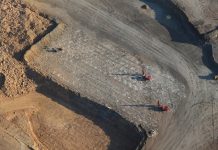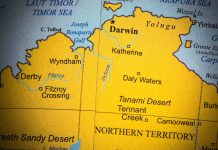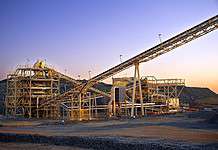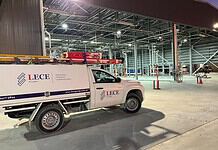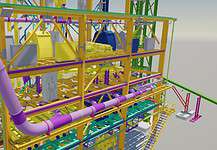AUSTRALIAN uranium developer Toro Energy believes the planned re-start of Japan’s nuclear reactors, expected this month, will boost global uranium prices.
Following last year’s Fukushima nuclear disaster, caused by the devastating Tohoku earthquake and tsunami, Japan closed 53 of its 55 reactors indefinitely. The Japanese Government is now expected to reopen the plants due to ongoing energy supply problems.
Speaking at the Paydirt 2012 Uranium Conference held in Adelaide last month, Toro managing director Greg Hall said the short-term uranium spot price had been impacted by a temporary uranium inventory overhang resulting from Japan’s ‘plant shutdown and safety stress checks’ approach in the wake of the tsunami incident.
The closure of the nuclear reactors caused major economic frustration in Japan, as manufacturing and industrial plants struggled to source sufficient electricity. In 2011, oil and gas imports for rotating thermal power plants jumped by 77 per cent and 18 per cent respectively.
Mr Hall said the inventory overhang would start to be eliminated once Japanese reactors were restarted. “This strengthening of the price will then become a welcome inclusion to the very obvious continuous and growing demand for uranium globally,” he said.
While total uranium demand in 2011 was 170 million pounds, Mr Hall said the industry was “far from dead” and was expected to grow by a further 100mlb per annum by 2025. He said economic powerhouses China, South Korea, India and Russia, which together accounted for 75 per cent of new reactor construction, would help underpin growth in the uranium industry for at least the next two to three decades.
“What also has been ignored in the post-Fukushima information trail is that in addition to events in Japan, the supply squeeze has been exacerbated by a number of announced delays in 2011 to major uranium project developments,” he said.
“This has generated a market over-estimation of uranium supply coming through the forward pipeline.
“This over-estimation has been to such an extent that some market forecasters are now suggesting the incentive price for medium-term uranium projects is at least 50 per cent above the current spot price for uranium.”
Political issues, lack of government approval and financial restraints have delayed the start-up of new uranium mines throughout the world, and only a few mines, including Toro’s Wiluna uranium project in WA, are expected to be ready to fill the demand gap from 2014 onwards. Providing Toro’s wholly-owned Wiluna project receives government approval this year, it will become the state’s first operating uranium mine. Mr Hall told conference delegates that Toro was anticipating the financing of about $300 million for Wiluna’s development and commissioning, of which about one third could be through debt funding.
First uranium sales from the mine are expected in 2014. Meanwhile, one year on from the March 11 Fukushima disaster, the Australian uranium industry is seeking to rebuild public trust in nuclear energy.
Australian Uranium Association chief executive officer Michael Angwin said the Fukushima anniversary provided an important opportunity for the nuclear industry to demonstrate transparency and responsiveness to people’s understandable concerns about the safety of nuclear energy. “The industry has long known that it needs trust and support if it is to continue to prosper,” Mr Angwin said in a recent statement. “Fukushima has thrown this into sharper relief and the industry is responding by showing how it is managing its own challenges.”
By Helena Bogle

